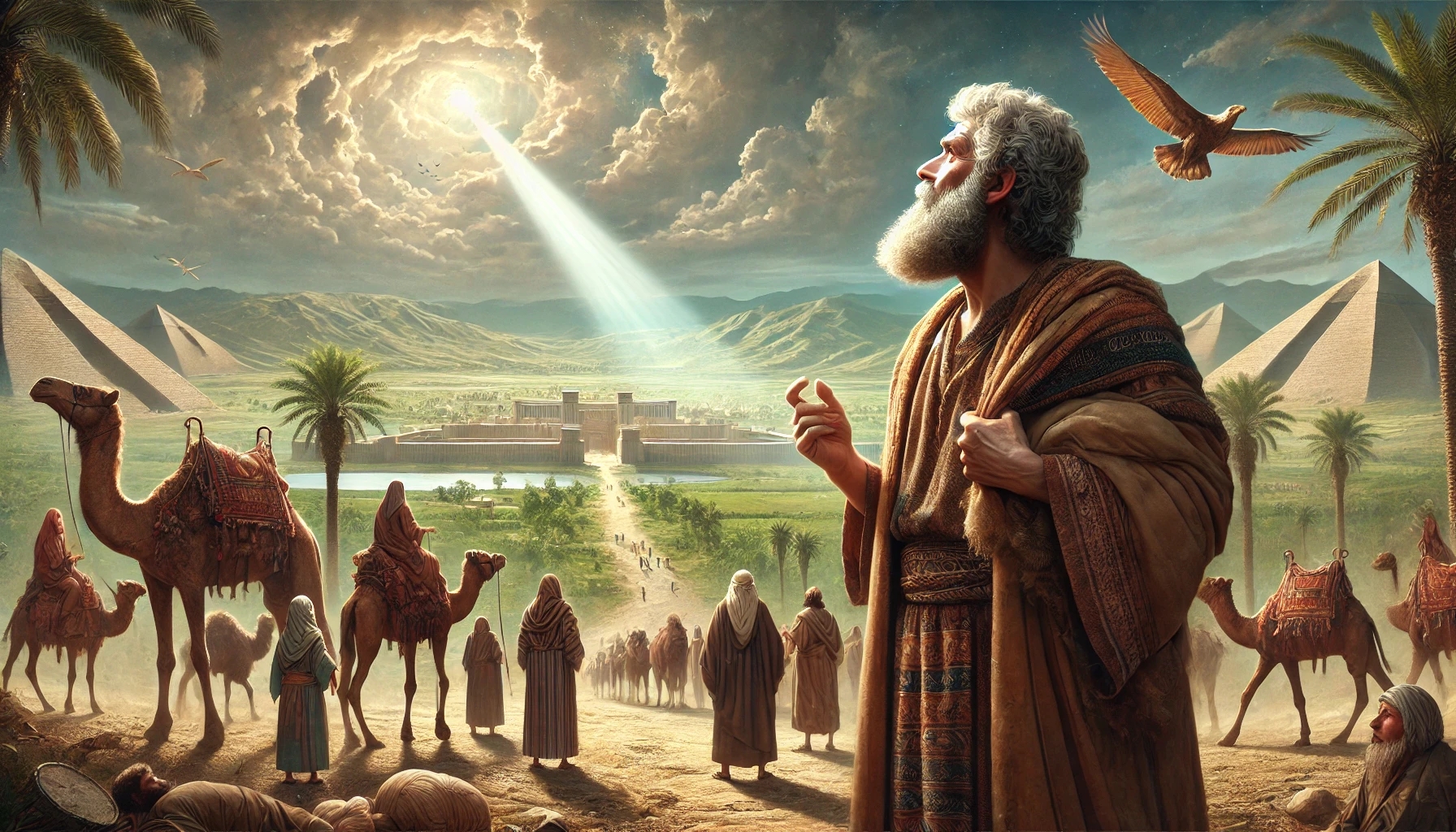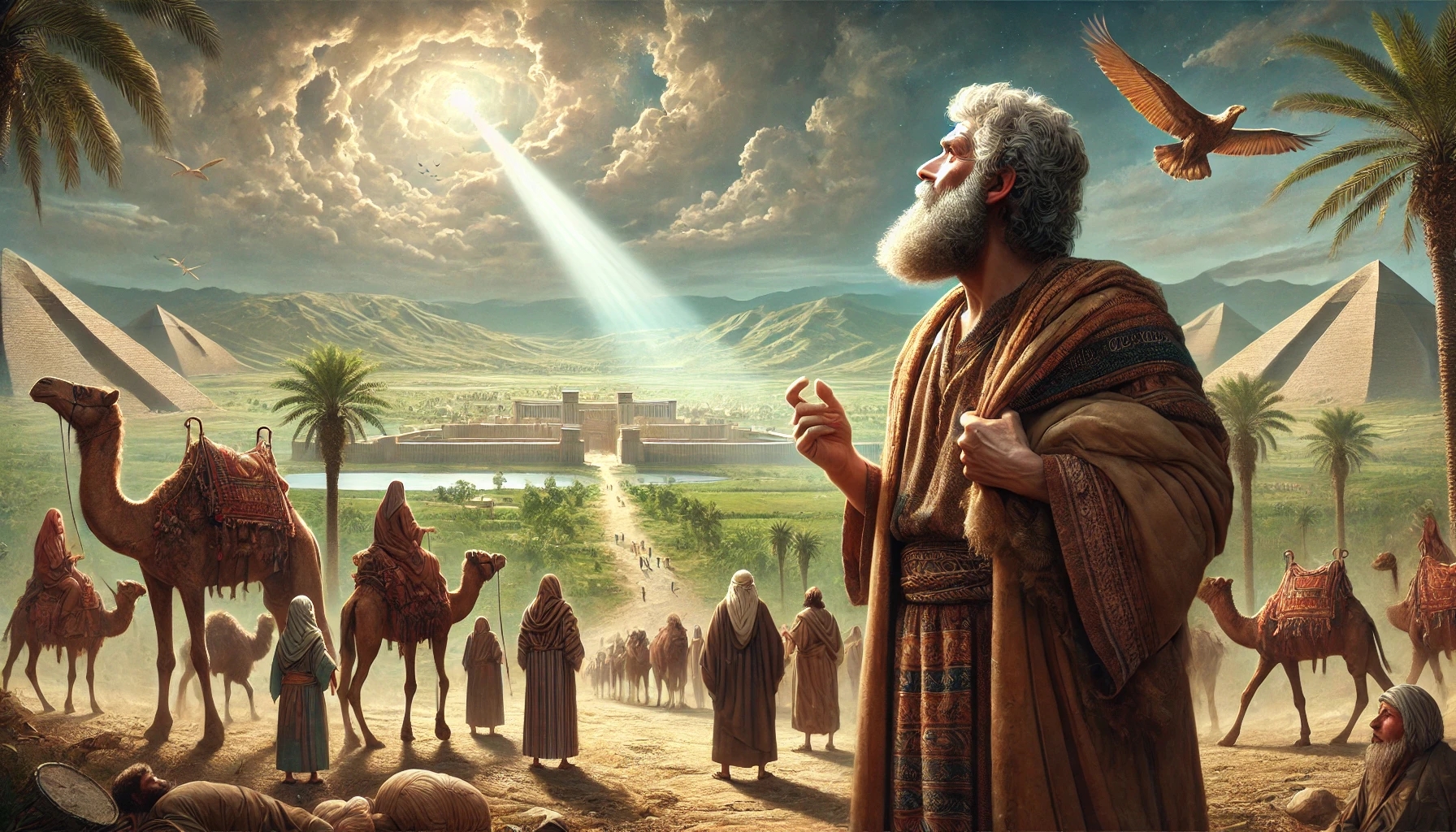

 Lesson 11: Ruth and Esther
Lesson 11: Ruth and Esther
 11.2 Ruth and Boaz
11.2 Ruth and Boaz
 The Redeeming Kinsman as a Type of Christ
The Redeeming Kinsman as a Type of Christ
………………………………………………………………….
 Introduction
Introduction
In a world where many people live in material abundance yet remain spiritually impoverished, the story of Ruth and Boaz speaks to us in surprisingly contemporary ways. Naomi’s bitterness—her wish to be called “Mara”—reflects the mindset of those whose lives are shadowed by disappointment and resignation. Yet at the threshold of that despair, God’s rescuing care emerges: He has not forgotten us, and often His freeing work begins in the smallest acts of kindness. Thus, the text of Ruth 2:5–20 leads us to a turning point that not only brings new luster to an ancient tale but also fills our modern lives with hope.
………………………………………………………………….
 Bible Study – Ruth 2:5–20
Bible Study – Ruth 2:5–20
1.Ruth’s Initiative and God’s Guidance (vv. 5–7)
– Ruth ventures out on her own into the fields to glean what remains of the harvest. Her loyalty to Naomi drives her into uncertainty, yet in that selfless act God leads her directly into Boaz’s field.
2.Boaz’s Generosity and Integrity (vv. 8–16)
– Boaz notices Ruth, offers her protection, and instructs his workers to leave extra grain for her. He acts not out of duty alone but from a heart obedient to God’s commandments.
3.Ruth’s Gratitude and Testimony (vv. 17–20)
– That evening Ruth returns with an ample harvest. Naomi marvels at the extent of God’s provision and learns that the man who sheltered Ruth is a relative of Elimelech—a future redeemer and bearer of hope.
………………………………………………………………….
 Answers to the Questions
Answers to the Questions
 Question 1: Read Ruth 2:5–20. Why is this such a decisive moment in the story?
Question 1: Read Ruth 2:5–20. Why is this such a decisive moment in the story?
This moment marks the shift from desperate need to tangible rescue. Up to this point, Ruth and Naomi depend entirely on alms and chance. But when God guides Ruth into Boaz’s field, it becomes clear that His care is purposeful and personal. He not only provides food but also reveals a plan that will end Naomi’s years of dislocation and reward Ruth’s loyalty. It is the moment when mere survival gives way to a fresh beginning.
 Question 2: Why do you think Naomi’s discovery of her benefactor’s identity was such good news?
Question 2: Why do you think Naomi’s discovery of her benefactor’s identity was such good news?
The revelation that Boaz is not only kind and generous but also a kinsman of Elimelech offers Naomi the prospect of permanently securing her inheritance. She realizes that her family’s poverty is not an unchangeable fate. A kinsman-redeemer can restore both the land and the family name. This insight awakens in Naomi the hope that God’s covenant faithfulness can cause lost roots to flourish again.
 Question 3: Imagine that the Creator not only became part of His own creation but also died for it. How should this astonishing truth affect how we view our own existence?
Question 3: Imagine that the Creator not only became part of His own creation but also died for it. How should this astonishing truth affect how we view our own existence?
When we grasp that Jesus as the “Son of Man” was not merely an observer but truly our kinsman who died in our place, our self-image is radically transformed. We are no longer strangers before God but beloved family members whose inheritance is secured by His sacrifice. Our spiritual poverty becomes not a stigma but the very context where God’s liberating grace shines. In this light, we value ourselves not for our performance but for His unlosable love.
………………………………………………………………….
 Spiritual Principles
Spiritual Principles
-
God acts concretely and personally.
He makes His will visible in everyday circumstances: in a field, in a friendly word, in a hidden act of care. -
Faithfulness in small things is rewarded.
Ruth’s willingness to glean at the edges of the field becomes the catalyst for God’s blessing. -
Trusting God’s covenant faithfulness brings new perspectives.
Just as Boaz’s family obligation served God’s purposes, so Christ’s actions and sacrifice fulfill God’s ancient covenant in the most unexpected way.
………………………………………………………………….
 Application for Daily Life
Application for Daily Life
-
Recognize God’s invisible guidance: Pay attention to small signs—an unexpected conversation, an offer that helps you, or a timely phone call.
-
Act even when you are alone: Just as Ruth courageously entered the field, we can take initiative during dark times—encouraging friends or tackling a task even if the outcome is uncertain.
-
Believe in your divine inheritance: Don’t be driven by feelings of unworthiness. Our dignity rests in Christ, the true “kin” who has redeemed our right of possession.
………………………………………………………………….
 Conclusion
Conclusion
The encounter with Boaz in the grain field is more than a historical anecdote—it is a picture of divine intervention in our present. God has not forgotten us; in the rustle of everyday life He reveals Himself where we least expect Him. Through Jesus, the ultimate kinsman-redeemer, our spiritual poverty is transformed into precious riches, and our roots are reestablished.
………………………………………………………………….
 Thought of the Day
Thought of the Day
“The hand that sows in secret is the same hand that reaps in the dark.”
………………………………………………………………….
 Illustration – Autumn in the Backyard
Illustration – Autumn in the Backyard
Lea breathed in the cool morning mist as she walked along the overgrown gravel path toward the community garden. For months she had retreated into her grief: the loss of her life partner, the termination of her fellowship, the painful estrangement from friends. Her heart had become a barren field. But today—driven by a quiet conviction—she came to gather what others had left behind.
In the dawn light, she spotted a few remaining snails on withered cabbage leaves when she saw him for the first time: Viktor, the garden manager, a man in his fifties wearing blue overalls and rubber boots, emerging from the small shed. He carried handfuls of surplus tomatoes and distributed them to the first waiting visitors. His eyes rested on Lea as she bent down to pick up some partly spoiled berries.
“Would you like these?” he asked curtly, noticing the small net bag in her hand. She shook her head emphatically. Yet his tone was not dismissive but warm. “They’re still perfectly fine. Take them.” He handed her another box filled with fresh salad greens.
Surprised, she looked up. “Thank you,” she murmured. There was no pity in his smile, only recognition. She knew then that anyone humble enough to glean displayed an unbreakable will to survive. Viktor nodded, turned, and vanished into the shed.
With trembling fingers Lea opened her messenger app—and found a message from him:
“If you like, you can stop by the greenhouse this afternoon. We still have spots in our urban farming project. Your plant knowledge could really help us.”
Her heart leaped. For weeks she had met only rejection; now someone offered her a role that valued her expertise and love for nature. Was it coincidence? Ruth had dared to enter a foreign field, and God had led her directly to her kinsman-redeemer. Had she found her own Boaz-field today?
That afternoon she entered the greenhouse. It smelled of damp soil and fresh greenery. Viktor was adjusting a new irrigation line among the pepper plants. He looked up when she walked in and smiled: “Glad you could make it.”
In the weeks that followed, not only did the vegetables flourish but so did Lea’s hope. She took charge of nurturing small tomato seedlings. Her tender plants thrived—a reflection of her own renewed life. Every evening she wrote in her journal:
“Today I was not just a recipient but part of the care.”
One morning, as she inspected the row of red tomatoes, Viktor spoke:
“You know, my family once owned land just outside the city. But after wartime upheavals and expropriations, we all had to flee. I stayed behind to carry on the tradition.” He gestured toward the ripe fruit. “This harvest is for my family—and now for you, too.”
Lea swallowed. It was as if she heard Naomi’s voice: “A kinsman has redeemed your inheritance.” Not by blood, but by spiritual kinship—two hearts joined by a shared purpose: preserving and passing on life.
On the day of the harvest festival, she placed a bowl of plump tomatoes on Viktor’s bench. She handed them to him with the words: “Thank you for not overlooking me.” His eyes glistened. “God sees you,” he whispered. “He brought us together.”
In that moment Lea knew: God’s hand had guided her—from her bitter despair to newfound vitality. Her field was no longer barren but a garden of hope. And like Ruth at the end of the book, she could say: “Your God is my God.”
In the heart of the city someone had sown—and in her, God’s harvest had begun.
 June 9, 2025
June 9, 2025 DAILY BIBLE READING
DAILY BIBLE READING Exodus 4 – Moses and the Burning Commission
Exodus 4 – Moses and the Burning Commission From Doubt to Authority – God Equips for Service
From Doubt to Authority – God Equips for Service Bible Text – Exodus 4 (KJV)
Bible Text – Exodus 4 (KJV) Introduction
Introduction Commentary
Commentary Summary
Summary Message for Today
Message for Today Thought Impulse
Thought Impulse
 June 8 – 14, 2025
June 8 – 14, 2025
 9.6.2025 | With God’s Word in Your Heart on the Right Path | HEART ANCHOR
9.6.2025 | With God’s Word in Your Heart on the Right Path | HEART ANCHOR Psalm 37:31 as a Compass for Your Life
Psalm 37:31 as a Compass for Your Life Psalm 37:31
Psalm 37:31 Devotional
Devotional Story – Autumn in the Community Garden: Lea’s Step into a New Beginning
Story – Autumn in the Community Garden: Lea’s Step into a New Beginning Thoughts on the Devotional – What Does Psalm 37:31 Mean for You?
Thoughts on the Devotional – What Does Psalm 37:31 Mean for You? Impulses for Today
Impulses for Today Prayer
Prayer

 Lesson 11: Ruth and Esther
Lesson 11: Ruth and Esther 11.1 Famine in the “House of Bread”
11.1 Famine in the “House of Bread” God’s Caring Presence amid Human Need
God’s Caring Presence amid Human Need Introduction
Introduction Bible Study – Ruth 1:1–5
Bible Study – Ruth 1:1–5 Question: Read Ruth 1:1–5. What problems did Naomi and Ruth face, and what caused them? How does this reflect the situation of all humanity today?
Question: Read Ruth 1:1–5. What problems did Naomi and Ruth face, and what caused them? How does this reflect the situation of all humanity today? God allows loss—but never without purpose.
God allows loss—but never without purpose. Application for Daily Life
Application for Daily Life What does your personal famine look like?
What does your personal famine look like? What decisions do you make in crisis?
What decisions do you make in crisis? Conclusion
Conclusion Thought of the Day
Thought of the Day Illustration – “The Way Back”
Illustration – “The Way Back” June 8, 2025
June 8, 2025 DAILY BIBLE READING
DAILY BIBLE READING Exodus 3 – The Call at the Burning Bush – When God Calls Your Name
Exodus 3 – The Call at the Burning Bush – When God Calls Your Name Moses’ Encounter with God at Horeb – A Story of Calling, Excuses, and Trust
Moses’ Encounter with God at Horeb – A Story of Calling, Excuses, and Trust Bible Text – Exodus 3 (KJV)
Bible Text – Exodus 3 (KJV) Introduction
Introduction Commentary
Commentary 1. The Place of the Call – The Wilderness as God’s Classroom
1. The Place of the Call – The Wilderness as God’s Classroom Summary
Summary Message for Us Today
Message for Us Today Reflection Question
Reflection Question
 June 8 – 14, 2025
June 8 – 14, 2025
